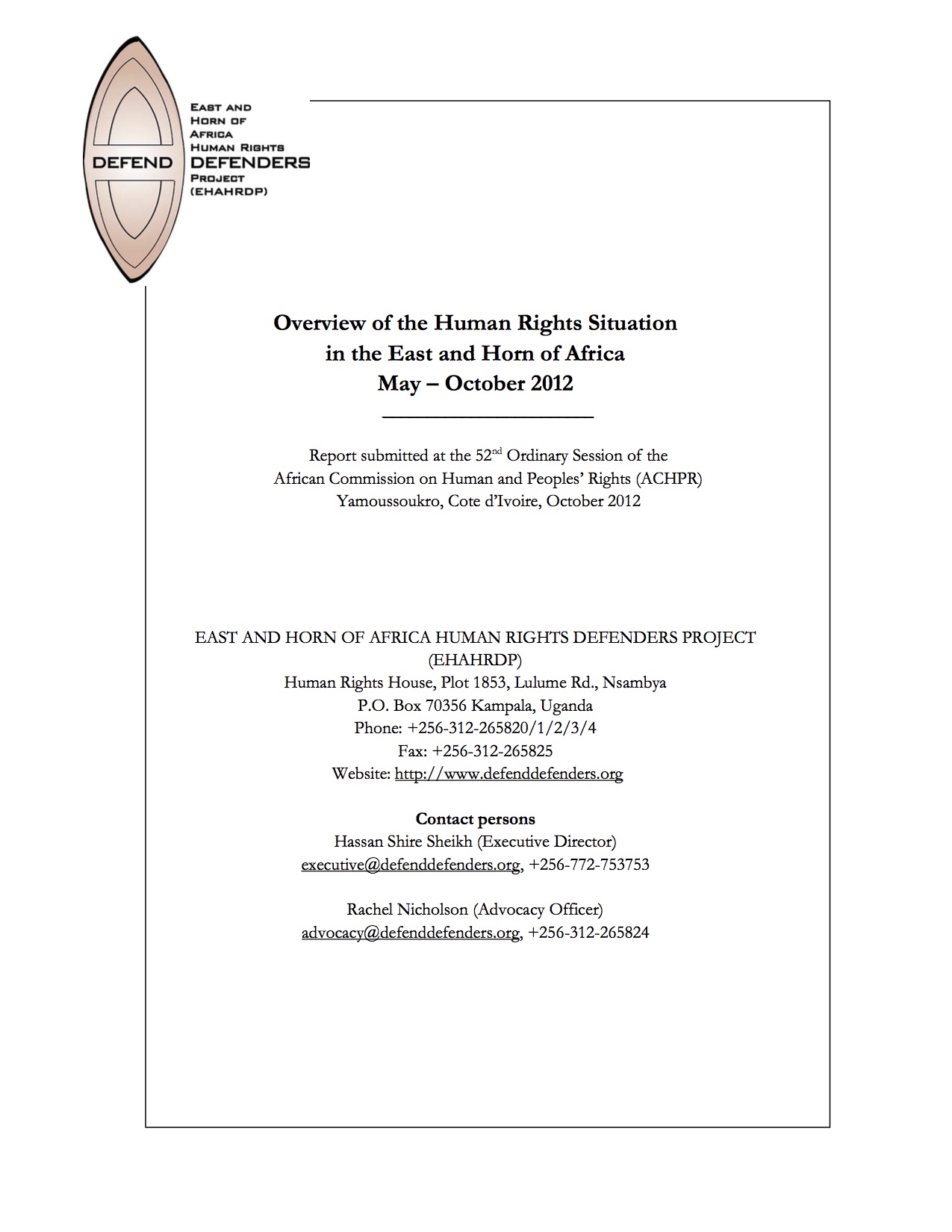The East and Horn of Africa Human Rights Defenders Network welcomes the opportunity offered by the 52nd Ordinary Session of the African Commission on Human and Peoples’ Rights (ACHPR) to highlight some of the current human rights issues in the East and Horn of Africa region for the period of May to October 2012, with a particular focus on the situation for human rights defenders. This report was prepared with the assistance of reports and information received by the East and Horn of Africa Human Rights Defenders Project (the secretariat of the East and Horn of Africa Human Rights Defenders Network) from our members and partners.
This period has witnessed significant political changes in the region, including the death of Prime Minister Meles Zenawi on 20th August 2012 and the succession of Hailemariam Deselegn in Ethiopia, as well as the end-of-transition in Somalia and the election of a new President. The effect of these transitions on the situation of human rights in the region remains to be seen. The upcoming presidential elections in Kenya in March 2013 are also being anticipated with serious attention.
In addition to these new developments, some longstanding negative trends have also continued to be observed.The surveillance of human rights defenders continues to be a serious concern with reports of new restrictions and surveillance measures being on track to pass into law in Ethiopia and Rwanda. The use of anti-terrorism legislation to stifle freedom of expression and to impede the work of human rights defenders and journalists have also continued.
Attacks on journalists in the region, especially in Somalia, have increased at an alarming rate. According to figures collected by Reporters Without Borders, 15 journalists had been killed in Somalia between the beginning of the year and late September 2012, with an escalation in the number of attacks following the end-of-transition.
The human rights situation in Sudan remains very grave one year after the independence of South Sudan and following the Commission’s consideration of Sudan’s periodic report at the 51st ordinary session. The period under review has seen a widespread crackdown on against dissenting voices, opposition groups and protesters. The humanitarian situation for civilians in Blue Nile, Southern Kordofan and Darfur remains precarious.
Some more positive signs have been witnessed in relation to the human rights situation in Eritrea. The international community has begun to pay more attention to the situation, including through the establishment of a new special rapporteur on the country and with Canada imposing a ban on the 2% diaspora tax. It is hoped that this increased attention, that draws also on the decisions and resolutions passed by the Commission, will result in improvements in the human rights situation in the country.

